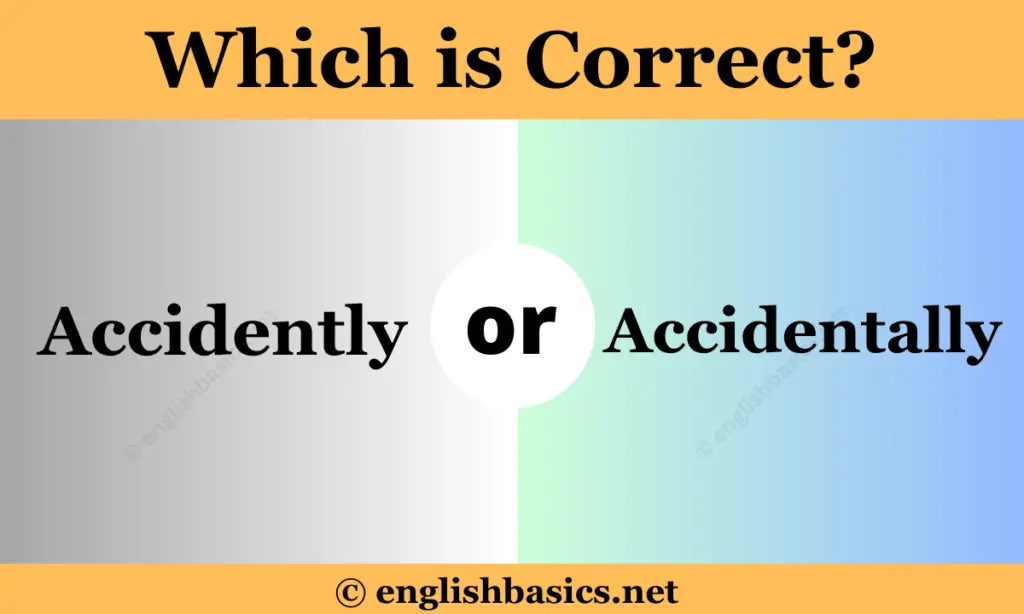The English language is filled with nuances and subtleties, and one such issue that often arises is the distinction between two seemingly similar words: “accidentally” and “accidently.” While the two terms might appear to be interchangeable, the fact is that they are different. This blog post will explore the differences between “accidentally” and “accidently.”

Accidently or Accidentally – Which is Correct Spelling?
“Accidentally” is an adverb that describes an action that was not intentional or planned. For example
I accidentally spilled my coffee on my shirt this morning.
In this sentence, the speaker didn’t mean to spill their coffee, but it happened anyway.
On the other hand, “accidently” is not a word. It is a common misspelling of “accidentally.” While it’s possible that you may encounter “accidently” in informal writing, it’s best to avoid using it in formal writing, as it is not recognized as a standard word in the English language.
So, why do people often make this mistake?
One reason is that “accidently” is a relatively common misspelling of “accidentally.” Another reason is that “accidently” is sometimes used as a shorthand or colloquial expression for “accidentally.” However, in formal writing, it’s always best to use the correct spelling, “accidentally.”
Use of the word “Accidentally” in a Sentence
- She accidentally left her keys in the car.
- I accidentally deleted my essential work file.
- He accidentally bumped into the table, causing the vase to fall.
- The cat accidentally knocked over the lamp.
- She accidentally stepped on his foot while dancing.
- I accidentally sent the wrong email to my boss.
- He accidentally hit the wrong button on the remote control.
- The toddler accidentally spilled his drink all over the carpet.
- She accidentally locked herself out of the house.
- I accidentally made a mistake on my math test.
- He accidentally hit his head on the door frame.
- The bird accidentally flew into the window.
- She accidentally broke the glass while washing dishes.
- I accidentally put the wrong fuel in my car.
- He accidentally left his phone at home.
- The baby accidentally dropped her pacifier on the floor.
- She accidentally left the stove on and caused a fire.
- I accidentally hit the wrong number while dialing.
- He accidentally tripped over the rug and fell.
- The dog accidentally dug up the flowers in the garden.
- She accidentally left the oven on and burned the cookies.
- I accidentally sent a sensitive text message to the wrong person.
- He accidentally threw the frisbee into the neighbor’s yard.
- The child accidentally dropped their ice cream cone.
- She accidentally backed into the car behind her while parking.
- I accidentally left my keys in the office.
- He accidentally put salt instead of sugar in his coffee.
- The ball accidentally went through the window.
- She accidentally poured too much oil into the frying pan.
- I accidentally hit the snooze button instead of turning off my alarm.
Conclusion
In conclusion, if you want to describe an action that was not intentional or planned, use “accidentally.” If you write “accidently,” you risk being seen as careless or unprofessional. Remember, the English language is filled with subtleties, and choosing the right word can make a big difference in how others perceive you. So take the time to correct spelling and ensure that your writing is professional, precise, and polished.